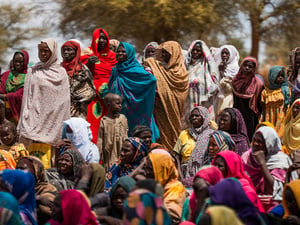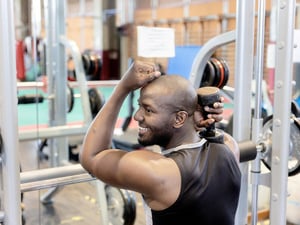The relevance of Jean-Jacques Rousseau 300 years after his birth
The relevance of Jean-Jacques Rousseau 300 years after his birth

A portrait of Jean-Jacques Rousseau
GENEVA, June 28 (UNHCR) - "Man is born free but everywhere is in chains." This quote made the Geneva-born political philosopher, Jean-Jacques Rousseau, world famous. But today, as we commemorate the 300th anniversary of his birth, is his thinking still relevant? And what can it teach us about the work of the UN refugee agency, which has its headquarters in Geneva.
Rousseau was born to a family of French Protestant refugees on June 28, 1712. Geneva, which offered shelter to thousands of persecuted Huguenots from the 16th Century onwards, left a deep impression on him. Not only did he dedicate his second "Discourse" to the Swiss lakeside city, but he also took every opportunity to sign his works "Citizen of Geneva."
Even so, his relationship with his birthplace was not straightforward. Orphaned at an early age, Rousseau spent many years as an itinerant, living in the homes of different employers, patrons and lovers, working variously as a clerk, an engraver and a private tutor.
Rousseau was propelled from obscurity in 1749 when he won an essay writing competition, arguing that the progress of knowledge and culture lead to the corruption of human behaviour. He published his first major political work, the "Discourse on Inequality," in 1755. Building on this he wrote "The Social Contract" and "Émile."
Both works were scorned by officials and intellectuals alike, and were publicly burned in Paris and Geneva. Convinced of conspiracies against him he travelled around Europe, finally settling outside Paris where he died in isolation at the age of 66.
Although a product of his time, Rousseau made many key contributions to the theory and practice of modern politics. One question occupied his thoughts more than any other - How can humans live freely within society?
Rousseau's thought stemmed from his notion of human nature. In contrast to some of his forerunners and contemporaries (such as Montesquieu and Thomas Hobbes), he believed that humans possessed a natural goodness and that caring properly for oneself did not exclude concern for the welfare of others.
The philosopher also believed that all men were socially equal. Inequalities, he argued, were the artificial creations of social systems based on private property and organized labour - systems that allowed the domination and exploitation of some people by others.
Although Rousseau has been seen by some as the father of modern democracy - and was undoubtedly influential in the evolution of democratic thought - he had very specific ideas on the form that government should take.
He endorsed direct democracy, in which every citizen had an equal responsibility to agree on the laws that governed them. He held Geneva up as the prime example of a small city state where this form of governance could be established.
Rousseau's thought played an important role in promoting the notion of human rights, which is central to UNHCR's work. Many previous philosophers, from Dutch jurist and philosopher Hugo Grotius to the Englishman Hobbes, had conceived of rights in terms of the possession of power or of legal constructs within society.
In contrast, Rousseau's insistence on the fundamental freedom of human beings in their "natural state" contributed to the modern notion that people have inalienable rights, regardless of their place in society. This notion is clearly reflected in 20th century documents such as the United Nations Charter and the Universal Declaration of Human Rights.
Rousseau did not set out a theory of international relations, but many of his underlying principles have helped shape modern thought in this area. At first glance, it looks as though Rousseau would have preferred states to remain as independent of each other as possible, because he believed that dependence was the source of all conflict. In situations of war, he was distrustful of rulers' motivations and would certainly have been a critic of great power intervention.
The world has changed significantly since Rousseau's time, and his ideals of internal unity and the independence of states feel outdated in a globalized world that is characterized by mass migration, diaspora populations and transnational social movements. It is therefore open to interpretation whether Rousseau would have embraced the notion of global governance or the establishment of organizations such as the United Nations.
Rousseau did not anticipate the concept of humanitarian intervention. However, he strongly believed in the intrinsically compassionate nature of humankind and the willingness of people to help alleviate the suffering of others. In that respect, Rousseau's life and work remain highly relevant to the work of UNHCR and the many other humanitarian organizations that are based in the city where he was born.
By Rachel Humphris in Geneva








